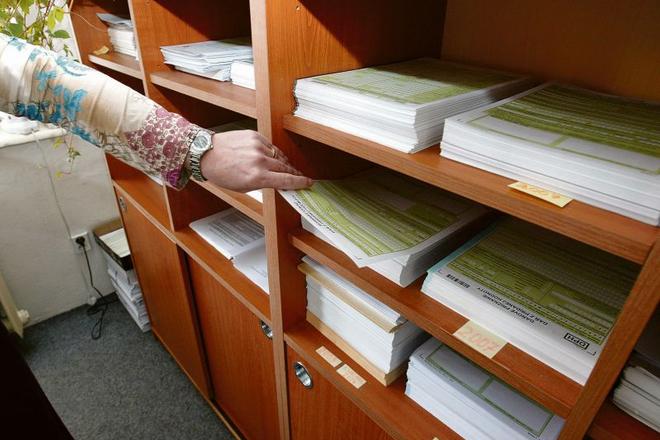CORRUPTION, administrative burdens, the corporate tax rate and paying tax advances weigh the heaviest on small and medium-sized (SMEs) Slovak businesses. Yet, entrepreneurs view the process of registering a business in Slovakia as efficient and say the related costs are reasonable. These are some of the results of SME-Friendly Slovakia, a survey conducted by the American Chamber of Commerce in Slovakia (AmCham) on 137 companies.
“AmCham Slovakia strives to improve the business environment in Slovakia for everyone – be it local companies, foreign investors, large or small businesses,” Jake Slegers, executive director of AmCham in Slovakia, told The Slovak Spectator. “As an important part of this effort, it is necessary to focus on small and medium-sized businesses, which form an integral part of the Slovak economy.”
SMEs make up 99.9 percent of the total number of business entities in Slovakia, provide work opportunities to almost 75 percent of the labour force within the corporate economy and participate by more than 50 percent in gross production and creation of added value, according to the National Agency for the Development of Small and Medium Enterprises.
In order to benchmark the results of its 2010 SME Survey, AmCham conducted the survey again this year, which it introduced at the Making Slovakia a Better Business Place conference in Bratislava on December 10. The survey’s results provide valuable feedback which will serve as a basis for a dialogue with the Slovak government.
The survey showed that as many as 83 percent of the respondents view relevant costs (in time and money) spent on regulations and reporting requirements as unreasonable, an increase from 68 percent in 2010. In 2013 only 17 percent considered these to be reasonable compared with 32 percent in 2010.
Respondents also complained more about corruption and the survey confirmed the poor view among SMEs of the Slovak legal system, with 92 percent of the respondents, up from 90 percent in 2010, opining that it does not support straightforward and fair resolutions in business disputes.
The survey showed a worsening perception of the tax burden, with as many as 74 percent of respondents considering the tax burden for companies to be unacceptable. In 2010 it was only 32 percent.
“In 2010, 68 percent of respondents perceived the tax burden of firms as optimal; in 2013 it was only 26 percent,” Patrik Ferko from Deloitte Slovakia, which partnered with AmCham in preparation of the survey, said when introducing the survey.
He attributes this decline to the increase of the corporate tax rate from 19 to 23 percent, the VAT hike and the introduction of health insurance premiums on dividends.
In this respect Ferko emphasised that SMEs are not complaining about paying taxes themselves, but about paying tax advances, as more than two-thirds of the respondents agree. They also refer to cash flow problems, as there is no guarantee that SMEs will generate income. He sees room for improvement in this area, because reducing the obligation to pay tax advances would not affect the aggregate tax the state collects.
The survey shows that Slovakia has significant room for improvement in the surveyed areas.
“Due attention should be paid, especially to the business environment for small and medium-sized businesses,” the survey writes in its conclusion. “The overall ‘bad mood’ and negative opinions of respondents result from the recent legislative changes: the introduction of social contributions from work performance agreements, increased income tax, health insurance contributions from dividends and changes in the Labour Code.”
The Finance Ministry in its response to the survey’s findings pointed to the latest changes to the tax and administration legislation, which already addressed several issues that entrepreneurs have complained about.
“As for next year the corporate tax decreases from 23 to 22 percent,” Alexandra Gogová, the spokesperson of the Finance Ministry, told The Slovak Spectator. “In the case of favourable economic development, the Finance Ministry does not exclude further reduction of this tax in following years.”
Gogová added that the bottom level for payment of tax advances for corporate entities has increased and unified with the valid level for private individuals. This will mean that fewer business entities will be required to pay quarterly tax advances.
According to the Finance Ministry, the law on accounting was evaluated within the assessment of administrative burden and costs as one of the most burdensome regulations. Recently adopted changes should reduce this.
On the basis of all the adopted changes, entrepreneurs will have to fill in 2.6 million fewer document pages, said Gogová.
Moreover, the creation of the register of financial statements will free entrepreneurs from the obligations to submit financial statements to various institutions and in various terms.
Among other measures that should make entrepreneurs’ lives easier, Gogová mentioned the simplification of tax returns as of 2015, the cancellation of some declaration requirements and the omission of reporting data by entrepreneurs that the state can otherwise obtain.
Robert Kičina, the executive president of the Business Alliance of Slovakia (PAS), told The Slovak Spectator that the results of the survey are in line with the results of other domestic and international surveys evaluating the quality of the business environment.
“The high burden of corporate and payroll taxes, bureaucracy and corruption rank among the long-term top problems that entrepreneurs in Slovakia have to face,” Kičina told The Slovak Spectator. “The increased criticism in the evaluation of the income and payroll tax burden is not surprising with regard to measures from the beginning of the year and also with regard to the fact that we have the highest corporate tax in the Visegrad Four region.”



 SMEs call for less red tape. (source: SME)
SMEs call for less red tape. (source: SME)